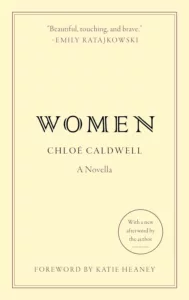In late summer, Mary tells me her loans are being forgiven, and the kids collect walnuts in the park, planting them everywhere. It’s a beautiful day. They assume they’ll grow a forest.
We’re sitting at the rot-wood picnic table that’s hosted a number of birthday parties for our shared, small friends in the glow and glare of spring and summer respectively, and I’m secretly disappointed by Mary’s luck.
As it’s almost fall, the season looms with the hope of crisp air but the defeat of darkness. And of course, it’s a time inescapable from the rhythms of school, a lifetime of it for me as both teacher and learner, and all those associations; as an adult, I’m thinking of my children’s school year approaching and my student debt accumulating, the future and the past inching toward me; me, of course, in the middle.
I say, “Wow! That’s incredible.” But some realness slips out too: “Mine are over 200k, and I don’t qualify for PSLF as an adjunct, which is bullshit.”
I’m incorrect about my lack of qualifying, but I don’t yet know it. What I know is that PSLF, for those who are unaware, stands for Public Service Loan Forgiveness, meaning those who make 120 payments, under an income drive repayment plan, on qualifying loans, and who work in certain industries that serve the public (like education) can one day open up their Student Loan account and find, behold! the most sacred of numbers: zero.
I dream of this day.
Because I haven’t been working full time, I don’t believe I qualify. I opted not to advance my career so I could spend more time with my children, whose childcare expenses were almost equal to my income anyway, and I don’t regret it, but I don’t appreciate being strong-armed financially into choosing.
My daughter has collected her walnuts in a sunhat, and without an extra walnut-carrying device for Mary’s older son, we’ve offered a new, empty dogpoop bag, which he’s received graciously and without much hesitation.
**
This past October, federal student loan payments resumed, after a more than three-year Covid pause, and in September, the interest began ticking. The total student loan portfolio in the US has maxed the unfathomable 1.6 trillion dollars, which might as well be infinity.
I remember grad school, where the intensity of my student debt originated, where I no longer qualified for a Pell Grant, or much of anything, it seemed, and where my friend Rick Mick, also from a middle-class family, told me that he cringed when he watched the interest grow—a calculator from hell. We were standing that day on Broadway outside the Columbia gates at 116th street. We’d probably just finished a debilitating yet honest workshop experience, one that rounded out our memoirs, our lives, into pieces of art, allowing our peers to critique our writing in a way that was not unlike critiquing our whole worlds up until then; I admit this was a life-saving experience for me—grad school—this seeing my childhood as art, objectively and yet potentially malleable depending on word choice or structure, and I think Rick felt the same. But it was an expensive lesson.
Rick’s parents were mail carriers from Ohio. He was tall and thin and could run the length of Manhattan, and he wrote elegantly about why he did that. I was the third child of a single mother of four, and I innocently wrote about growing up with my violent stepdad, and the hope my grandmother gave me. Barely beyond twenty-two, we’d signed our adult financial lives away by checking a few boxes (a process that pales in comparison to the hoops required to qualify for a mortgage, I’d later learn, when I couldn’t qualify due to my student loans).
He shrugged, then, though, and said, “Some people buy fancy houses. And others by fancy educations.”
I nodded, probably thinking—But you can’t live in an MFA. Nevertheless, I smiled it away too. This is when I still fantasized about a bestseller, when the future was still a dream, a hypothetical, a clichéd open road that I thought was just for me; when I didn’t have kids with their own futures to consider.
**
A few weeks after I half-heartedly suppress my jealousy at Mary’s good fortune, I conduct a quick Google search. This takes place beneath a two hundred-year-old beech tree about to be cut down by the University (thanks, Hurricane Lee and the World Ending). I’m sitting before the obvious bemusement of a squirrel clutching six acorns in its mouth, staring at me, blinking. It’s here that I realize I qualify for my loans to be forgiven via Biden and Harris’s expanded Covid program, called TEPLSF. The T and the E stand for “temporary” and “expanded.” I learn that this past July 1 certain unsexy but helpful changes were made effective, including the possibility for adjuncts like me, who work a lot but are labeled “part time”, to qualify for PSLF. My three, three-credit classes I’ve taught each semester for the last few years calculate as just over 30 hours per week via the math of StudentAid.gov—and via this expanded program, this is close enough to be full time.
In just six or so years (as opposed to the full ten), my student loan balance will be zero. My children will not yet be old enough for college.
**
The new year has come, and I recently took the kids to the park where they once planted walnuts. We went there often in summertime, and it’s been a while. My three-year-old had been asking, and we’d been delaying the trip, since school started and the days became too packed to freely, easily, swing her back and forth without checking the time.
My six-year-old instantly noted the lack of beech tree growth, as soon as we arrived, but without the pessimism of an adult noting that their plans had failed. It was a matter-of-fact observation that the nuts had not yet taken hold, but it was easy to believe they would. There wasn’t any proof, at least, of good to come. But I found myself telling her that such things take time.
***
Looking for your next book to read? Consider this…
Women, the exhilarating novella by Chloe Caldwell, is being reissued just in time to become your steamy summer read. The Los Angeles Review of books calls Caldwell “One of the most endearing and exciting writers of a generation.” Cheryl Strayed says ‘Her prose has a reckless beauty that feels to me like magic.” With a new afterward by the author, this reissue is one not to be missed.
***
Your voice matters now more than ever.
We believe every individual is entitled to respect and dignity, regardless of skin color, gender, or religion. Everyone deserves a fair and equal opportunity in life, especially in education and justice.
This election will fundamentally change the texture of this country, and voting is our best chance to shape the future. You must register to vote before your state’s deadline to make a difference. Voting is crucial not only for national elections but also for local ones. Local decisions shape our communities and affect our daily lives, from law enforcement to education. Don’t underestimate the importance of your local elections; know who your representatives are, research your candidates, and make an informed decision.

